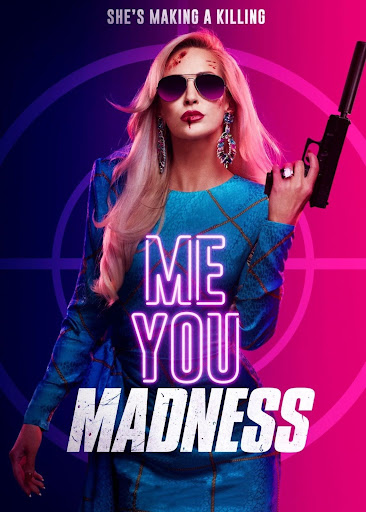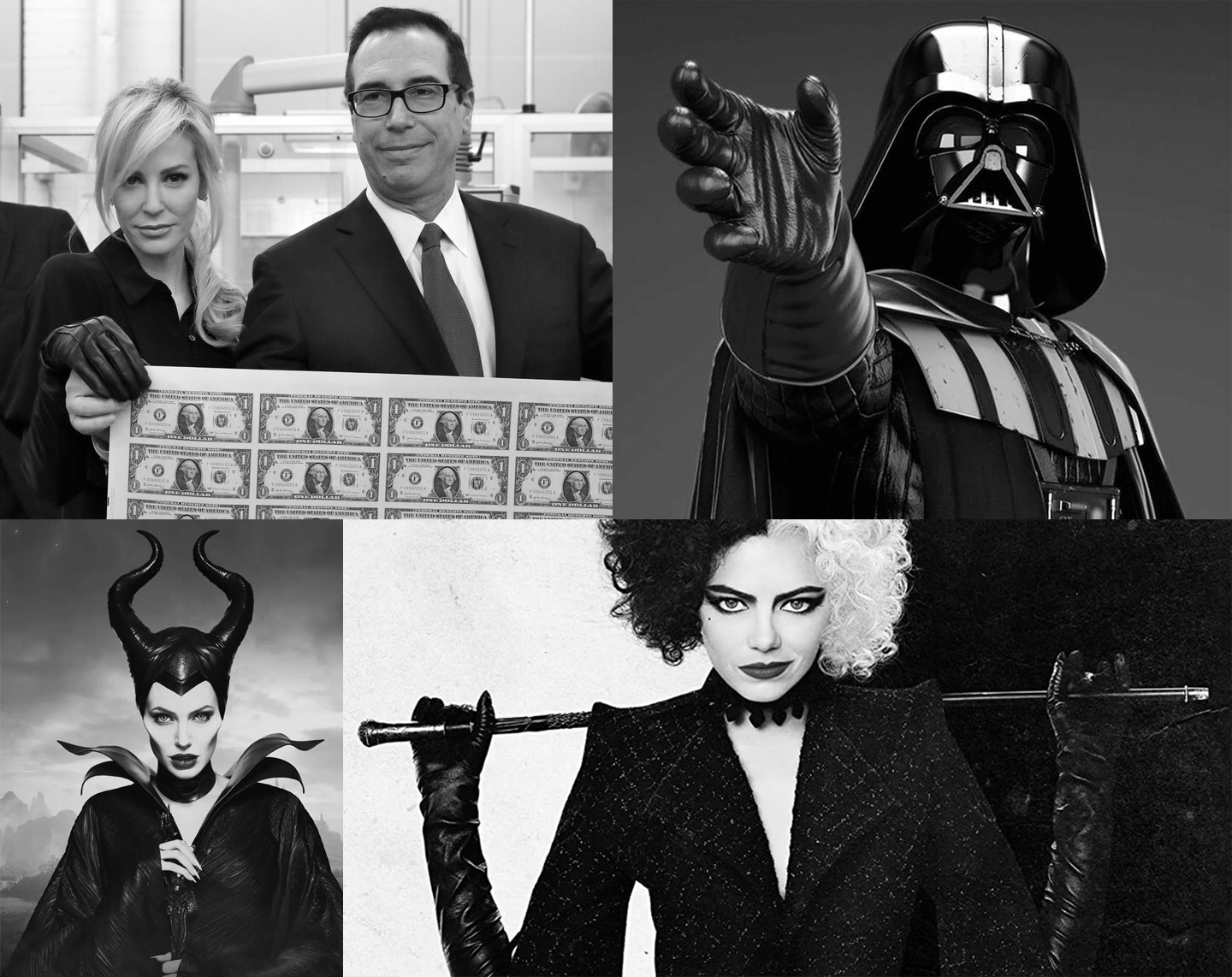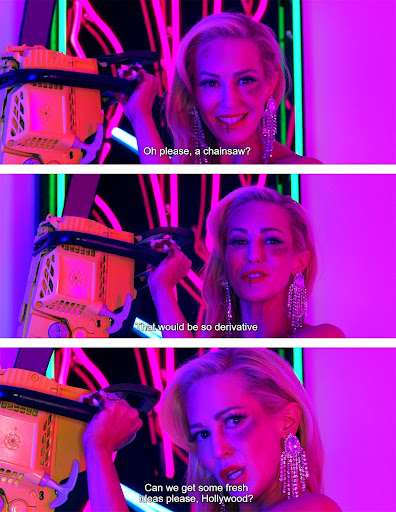Finance, Decadence, and Me You Madness
Andrew deWaard / University of California, San Diego

When an artwork or cultural object is deeply layered with an array of meanings we call it a rich text. This is not that. This is what happens when financialization and oligarchy and extreme wealth unfold in the new gilded age of a crumbling, decadent empire. Specifically, this is what happens when you are the son of a Goldman Sachs general partner, work at daddy’s firm for 17 years before starting your own hedge fund, earn a reputation as the “foreclosure king” for kicking 36,000 people out of their homes during the real estate crash, many of them elderly, get let off by Kamala Harris despite thousands of violations, start financing over 40 blockbusters (including Avatar, The LEGO Movie, American Sniper, and Batman v Superman) with alleged abuser Brett Ratner, become the United States Secretary of the Treasury for President Trump, orchestrate a massive transfer of capital to the ruling class through the $1.9 trillion Tax Cuts and Jobs Act, which raises taxes on most Americans while 82 percent of the benefits go to the top 1 percent, and then your wife, a failed actress 18 years your junior, writes, produces, directs, and stars in a direct-to-streaming movie that is released a few weeks after the January 6 coup attempt. The film is Me You Madness; the man is Steve Mnuchin, a ruthless hedge fund manager; and the woman is Louise Linton, who plays a ruthless hedge fund manager in the film, whose character tries to kill – but ends up marrying – a conman who rips off the elderly. Not a rich text, this is a wealthy text.
In 2017, Mnuchin had moved from putting his name on Hollywood movies to American currency and was photographed inspecting his first bills at the Bureau of Engraving and Printing (Figure 3). Linton was on hand to strike a pose “in black, with long leather dominatrix gloves, a long leather skirt, wide black belt, black blouse and black stilettos,” earning comparisons to Darth Vader, Maleficent, and Cruella de Vil. To Vanity Fair, she was “serving Scrooge McDuck Realness.” This is but one of her many Marie Antoinette moments, leading the Washington Post to dub her “the Trump administration’s resident supervillainess.”

After four bruising years in the spotlight, Linton retreated to Los Angeles in 2020 and spent two whole weeks writing what she admits is a knockoff of American Psycho, but told “as a woman’s tale” (she says as much in a voiceover at the beginning of the movie). Despite her best intentions, she pulls it off. The film is badly written and the performances are painfully failing to be camp. Her co-star is Ed Westwick, of Gossip Girl fame, who needed the paycheck, presumably, after being accused of sexual assault by three women in 2017. Linton’s attempts to be clever and “meta” include just listing movies. Twice. But Linton actually does capture something uniquely American and psychopathic about this era. If we survive the climate collapse, future audiences might revisit this masterpiece of megalomania to gain insight into the minds of the maliciously wealthy.
At its most immediate, Linton’s vanity project is a chance for her to live out her movie star fantasies. There are 42 designer outfit changes, dozens of luxury cars, and countless name drops of elite brands. Scenes are constructed to give Linton a chance to strut, vamp, pose, exercise, moan, monologue, or brandish a weapon in a montage set to a hit song from the 80s. The soundtrack, including The Cure, New Order, Duran Duran, The Pointer Sisters, a-ha, and more, would have cost a small fortune to license. The lighting and production design also suggest there was a considerable budget to hire talented crew members. Her character is a self-described “materialistic, narcissistic, self-absorbed, raging misanthrope… addicted to cocaine, champagne, excessive exercise, sex, expensive shoes and indescribable violence.” She’s a hedge fund manager by day, serial killer by night, who justifies her murder by claiming it saves the taxpayers money in imprisonment costs, so she is “doing society a favor.” Calculating her vigilante body count at around one hundred, and thus $7.5 million in taxpayer savings, she turns to the camera and says, “You’re welcome, California.” On Linton’s Instagram a few years earlier, a similar scene took place.

Whether it’s a murderous rampage to save taxpayer money on the silver screen, or a condescending, self-righteous post defending how much she’s “given to the economy” through taxes and self-sacrifice on a social media screen, Linton’s wealthy text is dripping with disdain.
The financing of the film came from “friends and family,” which is a polite way of saying her husband’s intergenerational and ill-begotten wealth. Since his time in the Trump administration, Mnuchin has operated an investment fund with participation from the Saudi, Emirati and Qatari sovereign wealth funds, a clear conflict of interest for the nation. The film was packaged by Endeavor (one of the top talent agencies) and distributed by STX (a producer/distributor that specializes in midbudget films like Bad Moms and Hustlers), both of which are media companies owned by private equity firms, which are similar to hedge funds. [1] Private equity firms operate specialized, high-risk investment funds, available only to the wealthy or to institutional investors. Its primary strategy is the leveraged buyout, which is when a PE firm acquires a company owned by public shareholders by using the target company’s own assets as collateral to secure debt, which it uses to pay a premium for all of the company’s shares. In other words, the public company that is acquired is taken private and is then responsible for paying back the debt that was used to purchase it. Following the acquisition, the PE firm then restructures the company over the next several years, pays itself dividends and fees in the meantime, then “exits” the investment by selling the streamlined property or taking it public. In my book, Derivative Media: How Wall Street Devours Culture (UC Press, 2024, open-access), I document 40 major private equity deals in American media, including theater chains like Regal and AMC, studios like MGM, Legendary, and Dreamworks, talent agencies like Endeavor and CAA, record labels like Warner Music and EMI, and radio networks like iHeartMedia and Cumulus. Every case includes dramatic layoffs, restructuring, and profiteering by the investment class. Along with hedge funds, asset managers, venture capitalists, and derivatives traders, private equity is a key part of the financialization process that is robbing the cultural industries of their operational and creative capacity. Adding insult to injury, it leaves us with Me You Madness in its wake.

That Me You Madness now lives on Tubi, a free streaming service that surveys our vast cultural wasteland, is an appropriate final resting place for this fin-de-siècle artwork of the long American century. The film is chopped into pieces and interspersed with ads, so you can watch a Scottish heiress sublimate her life story as the wife to a financier and Trump acolyte into a movie about a serial killer chopping people into pieces. “When love is not madness,” the film proclaims with a postscript before the credits, quoting Spanish poet Pedro Calderon de la Barca, “it is not love.” For Linton and Mnuchin, this reads more like a confession.
To be clear, nothing Louise Linton has done even remotely compares to the violent, material destruction wrought by her husband’s long career of financial engineering. But symbolically, Linton is a transfixing figure, both on-screen and off. She says the quiet part about capitalism out loud. Very loud. Obnoxiously loud. A hedge-fund-manager-turned-treasury-secretary’s wife murdering a sex offender in neon lights set to a song by Tiffany loud. #hermesscarf #usa
Image Credits:
- Poster for the 2021 American comedy thriller film Me You Madness (Source: IMDb)
- Me You Madness Trailer on YouTube
- Louise Linton and her husband Steven Mnuchin, along with her fictional counterparts Darth Vader, Maleficent, and Cruella de Vil (Created by author)
- Linton defends her and her husband’s “sacrifices” to their country in the comments section of a now-deleted Instagram post
- Me You Madness is just one garish product of financialized filmmaking (Screenshots)
- Endeavor, previously known as WME-IMG, was owned by Silver Lake Partners, a private equity firm, at the time the film was made but has since had an IPO and become a publicly-traded company. [↩]
seems like a good film